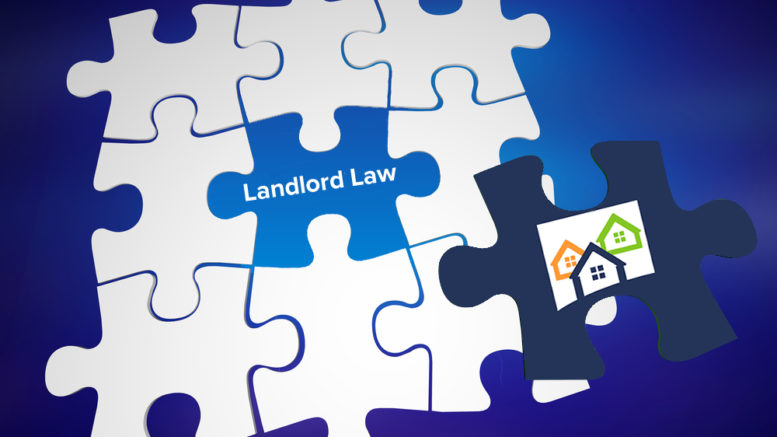Part 1 – Setting things up right
We are at the start of a new decade and many landlords are panicking. New regulations, lots of new regulations, are making renting property harder. However, so long as you take care to keep up to date and follow the rules, you should be fine.
People will always want somewhere to live, and your investment should hold its value.
Using a good letting agent is of course one way to go. However, although many agents are great, others are not, and it is often hard to tell good agents from bad. There is really no substitute to learning as much as you can yourself about the renting regulations, so you can check that your agents are doing things properly. Or so you can save money by doing things yourself.
Here is a list of some of the preliminary things you need to do before you start advertising for tenants:
1 Protect your property at the Land Registry
This is probably the most important thing of all. If you rent a property to tenants but the contact address for the property at the Land Registry is the property itself, it is easy for dishonest tenants to borrow money on the security of the property, or even sell it without your knowledge.
Find out more from the video here https://youtu.be/uX6K-HIe1ZU featuring landlord and tenant solicitor David Smith, speaking at the Landlord Law Conference.
2 Check you have permission to let
There are a number of things to consider here:
- Does your mortgage allow renting? If you do not have a ‘buy to let’ mortgage you need to check this out.
- Is your property leasehold? For example, are you are planning on renting out a leasehold flat? If so, you need to check the terms of your lease. Some leases forbid subletting which means that you could be at risk of forfeiting your lease if you rent to tenants.
- Does your insurance permit you to rent out the property? You need to be careful here as if you are using the wrong type of insurance your insurance company may refuse to pay out on claims. Check out my free Insurance Mini-Course here to find out more.
- Is your property an HMO? It will normally be an HMO if you rent to three or more sharers who are not family members. If your property is an HMO you may need to obtain an HMO license – and there are fierce penalties if you rent a licensable HMO property while it is unlicensed. Find out more in our Free HMO 101 course here.
3. Make sure your property is in a proper condition
Once you are sure that you have all the necessary permissions, you need to make sure that the property is in a fit and proper condition before advertising it to let.
Landlords now not only have to comply with the repairing obligations (set out in section 11 of the Landlord & Tenant Act 1985) but also with the new legal obligations requiring property to be ‘fit for human habitation’.
Here are some of the other checks and inspections you need to do:
- If the property has gas you need to get it inspected by a gas installer registered with the Gas Safe Register. They will provide you with a certificate which must be handed to tenants before they move into the property
- You will need to obtain an Energy Performance Certificate which must also be given to tenants before they rent the property. Your property must have an energy rating of not less than E.
- You must carry out a fire risk assessment and ideally keep a record of this. Find out more in the RICS Clear Guide to Fire Safety.
- You must install a working smoke alarm on every storey of the property which is being used for ‘living accommodation’ and a carbon monoxide alarm in every room used as living accommodation where solid fuel is used (e.g. coal fires and wood burners). These need to be tested and shown to be in good working order on the first day of the tenancy. There is government guidance here. Note that at present this is only a legal obligation in England, but landlords in Wales are advised to fit alarms also.
- You need to carry out risk assessments for legionella disease and keep records to show that this has been done.
- You must ensure that all furniture provided complies with the furniture regulations.
4. Ensure that you comply with Data Protection rules
This is something that is often overlooked. However, it is important and there are hefty penalties for non-compliance.
Compliance is not hard though:
- All landlords need to register with the Information Commissioner’s Office, and
- Ensure that tenants data is kept safely in compliance with the data protection legislation (which applies to landlords)
- Tenants also need to be given suitable data protection notices.
Find out more about this here.
5. Make sure you keep up to date
Law, rules and regulations change. For example, parts of this article could be out of date if you are reading it months after it was first published. So, it is really important that you keep up to date with developments.
Here are some suggestions:
- Sign up to receive my free Weekly Bulletin (and get a free eBook!)
- Join my Landlord Law service
- Follow my (free) Landlord Law Blog
- Consider attending the Landlord Law Conference.
Most of the things in this article will not change though. Why not bookmark it so you can refer to it later?
Watch out for Part 2 in this article series, where I will be looking at some other things you can do to avoid problems when renting property to tenants.
Tessa Shepperson
2 January 2020.
Tessa is a specialist landlord & tenant lawyer and runs the popular online Landlord Law service.
You can read Part two here.









Be the first to comment on "Avoiding Problems when renting Property to Tenants"